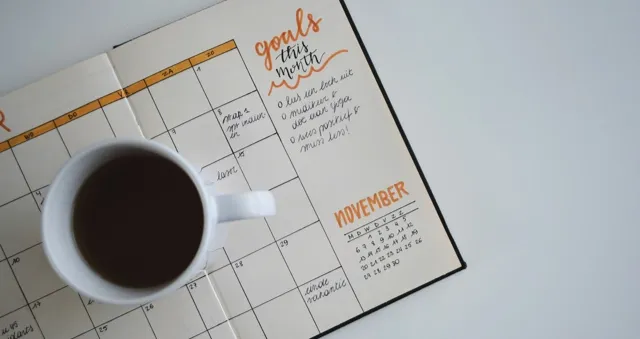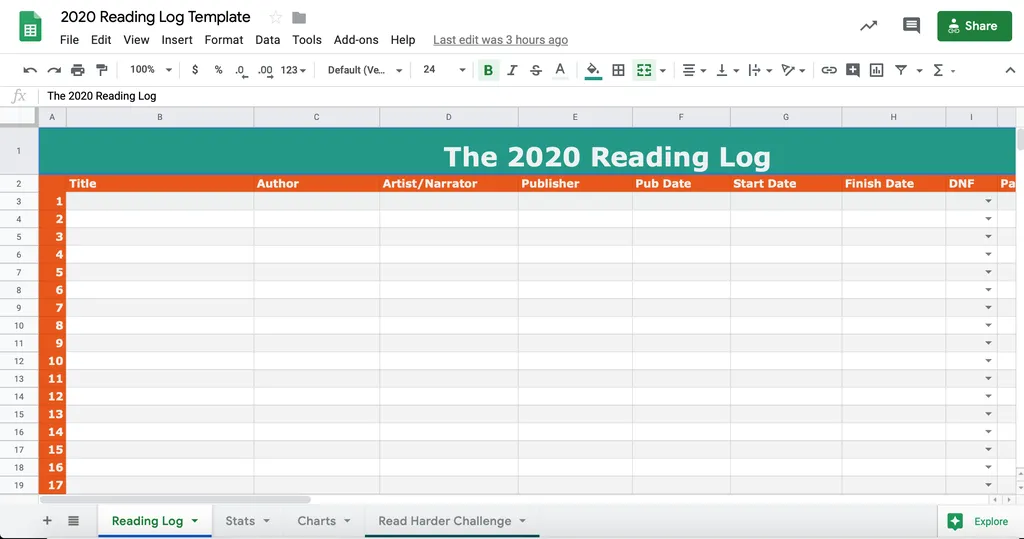
Ways to Keep Up With Your Reading Goals in 2020
So you’ve made a reading-related resolution for 2020. Maybe you want to read more diversely. Maybe you’ve decided this is the year you finally give graphic novels a try. Or maybe you want to finally tackle that ever-growing, ever-daunting TBR pile. Perhaps you’re just trying to read more than you did last year.
It’s the beginning of the year. Your intentions are pure, but maybe you’ve tried to set similar goals in the past and failed. Not in 2020, my friend. Here are some concrete methods you can use to keep up with your reading goals this year and finish off your year as strong as you started.

Step One: Setting Your Goals
I’m going to own this. In 2019, I took on too many reading goals, and by the end of last year, I’d read fewer books than I had in 2018 or 2017. I’d given myself far too much to do, and in the end, I wound up not doing any of it. So decide on one or two reading goals, and stick with them.
Unsure of what your particular goals should be? Well, I’m of course partial to the Book Riot Read Harder Challenge, but it’s okay if this set of challenges does not work for your reading lifestyle right now. Most importantly, you have to enjoy what you’re reading or you won’t sit down and do it. Maybe another challenge suits your tastes better. GirlXOXO created this Master List of 2020 Reading Challenges. I think this list is fantastic and has something for everyone.
At the end of the day, you know yourself. Maybe these challenges are too much to try to keep up with this year. As much as I have enjoyed them in the past, I myself have decided to go with a simpler set of challenges. This year, I’m not buying any books. I will only read books I already own, ones I borrow, and ones I get for free. And, yes, I’m cheating a little because I subscribe to Scribd, which gives me access to a lot of audiobooks and ebooks (I highly recommend). I’m also trying to read more books than I did last year, and to read more diversely.
Step Two: Telling Someone About Your Goals
Look at me! I’ve already completed step two by telling all of you readers what I’m attempting to do this year. Decide what you want to do, and let everyone know. Tell your friends. Tell your followers on Goodreads. Tell the woman checking you out at the grocery store. Tell your mom. Tell your cats.
Maybe this means the next time your friends ask you to go to a movie, you’ll have to say to them, “I promised myself I would read for an hour every day, so we’ll have to go after that.” Make people know your reading goals are a part of your lifestyle. If you make other people respect your goals, you will respect them more too.
Step Three: Tracking Your Reading Goals
This is my favorite part. I just love tracking things. I might have gone overboard this year with my book tracking methods, but tracking your reading goals is such a great way to look back at the year so far and see how much you’ve accomplished. Here are all of the methods I am using.
- The 2020 Reading Log: Book Riot’s very own Tirzah Price created this freaking amazing reading log template that will help you keep track of so many aspects of your reading goals in 2020. For my own personal reading goals, I’m loving that this log allows you to keep track of POC authors and protagonists, books in translation, queer authors and protagonists, and #OwnVoices. If you’re doing the Book Riot Read Harder Challenge, this log also helps you keep track of that as well.
Step Four: Checking in on Your Progress & Taking Breaks
As the year progresses, don’t forget to check in on your progress, keep up with tracking your books, and reassess your goals as needed. Remember that it’s okay to fall behind on your goals, even at the very start of the year. Some months are harder than others, and just because you may slip out of your routine doesn’t mean you have to give up on the whole plan.
After all, you’ve already told your cats that you intended to read more books in translation this year. You don’t want to disappoint your cats, do you?
Find ways to keep yourself accountable throughout the year, not just at the very beginning. Maybe that means joining a book club that is dedicated to tackling a reading challenge together. If you prefer reading on your own, then maybe you give yourself deadlines. I know I keep singing Bookly‘s praises, but another cool thing about Bookly is you can set goals for specific dates when you want to have a book finished. I love this feature, and I intend on using it this year.
Step Five: Treat Yourself
I think most people like to be rewarded for their accomplishments, so don’t forget to reward yourself for completing milestones this year, whether they’re big or small. Completing a reading goal might not seem like a huge accomplishment, but you know what? It kind of is.
Studies have shown that reading improves your life in so many ways: it makes you more empathetic and open-minded, reduces stress, improves your vocabulary, and it can help you live longer. So even though your reading goals may seem small, you’re doing a lot of good for yourself. You definitely deserve to be rewarded for prioritizing personal growth and self-care through reading.
Congratulations on setting your reading goals for 2020, everyone! Good luck to you in the months to come.
- Treat Graphic Novels Like Books in 2020 (Because They Are)
- Begin 2020 With a Backlist Bump
- 9 Interesting Books That Will Teach You Something New This Year
- How to Find the Right Books For You
- BOOK vs. FOMO: 3 Ways to Overcome Your Fear of Missing Out and Read More
- I Can’t Believe I Only Read 20 Books in 2019. What Happened?
- The Benefits of Leading a Bookish Life in 2020













